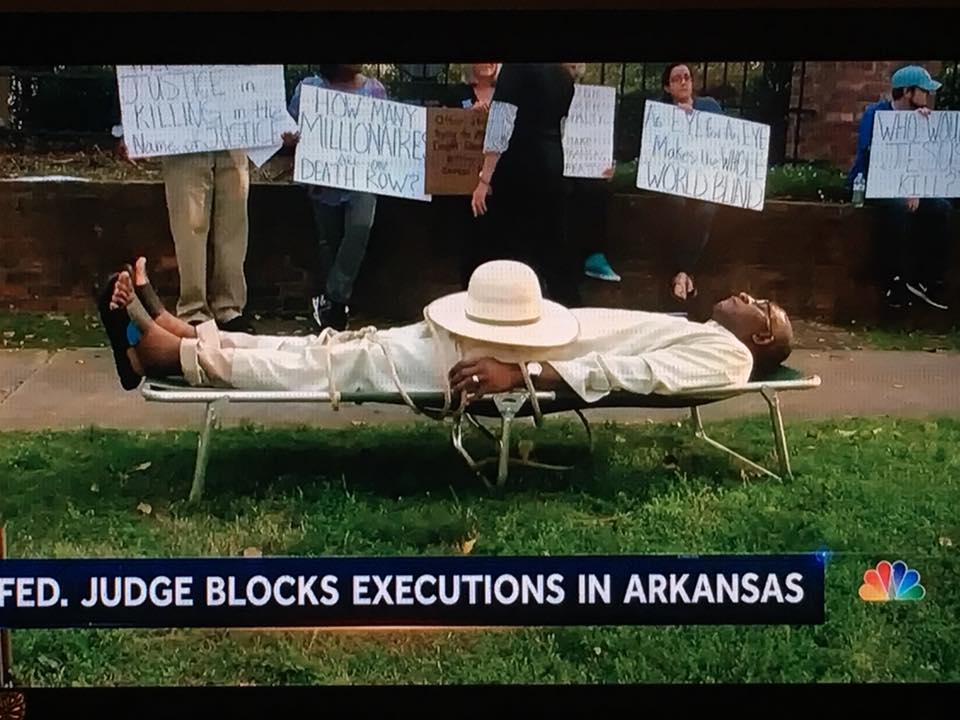The United States Supreme Court on Tuesday declined to take up the case of an Arkansas judge claiming civil rights violations based on religious beliefs he exercised in his other job as a Baptist pastor.
Without comment, the high court left standing a lower court’s ruling upholding Judge Wendell Griffen’s disqualification from hearing death penalty cases after he took part in a prayer vigil opposing a series of planned executions on Good Friday in 2017.

Media coverage of Judge Wendell Griffen at death penalty protest in 2017.
Griffen, pastor of New Millennium Church in Little Rock, Arkansas, who writes commentaries for Baptist News Global, signed an order on April 14, 2017, temporarily blocking the use of an execution drug that the distributor claimed the state of Arkansas procured through fraud.
Later that day he and other church members attended a death penalty protest at the state capitol where he was recognized, photographed and reported on by local media.
At request of the state’s attorney general, the Arkansas Supreme Court the following Monday issued an order, without prior notice or a hearing, permanently barring the judge not only from the pharmaceuticals case but all civil and criminal cases involving the death penalty or the state’s execution protocol.
Judge Griffen claimed the state Supreme Court justices unconstitutionally deprived him of his rights to freedom of speech, freedom of assembly and the free exercise of religion.
A divided 8th Circuit U. S. Court of Appeals disagreed, finding the sanction applied only to his role as a public employee and that the state had a valid interest in ensuring that judges are impartial.
Griffen began serving as a pastor of New Millennium Church in 2009, a year before his election as a circuit judge. Griffen, who previously served 12 years on the Arkansas Court of Appeals, posted in a blog published on April 10, 2017, his personal view that the death penalty “is not morally justifiable” based on his reading of Scripture.
At the Good Friday vigil he did not identify himself as a judge or wear his judicial robe when photographed lying motionless on a cot posing as a dead man “in solidarity with Jesus, the leader of our religion who was put to death by crucifixion by the Roman Empire.”
Griffen insisted his views on capital punishment had nothing to do with his ruling on a matter of property law and he was entitled to freely practice his religion whether he is a judge of not.
He accused the Arkansas Supreme Court justices of exceeding their jurisdiction by issuing a “writ of mandamus,” an extraordinary judicial remedy that bypasses normal standards of due process. If the state wanted to defend its decision to bar him from death penalty cases, he said, it should have done so through less restrictive means.
Previous story:
